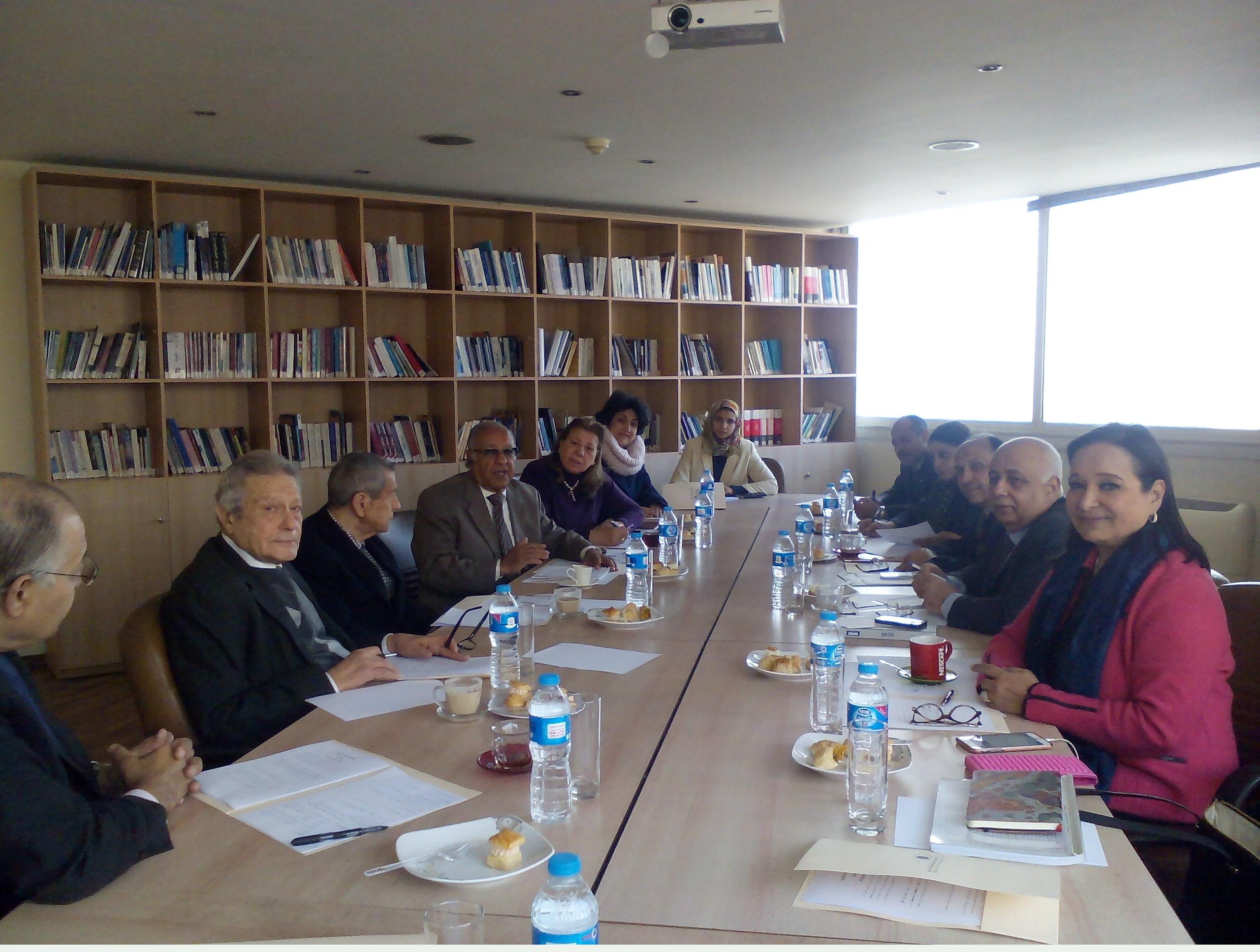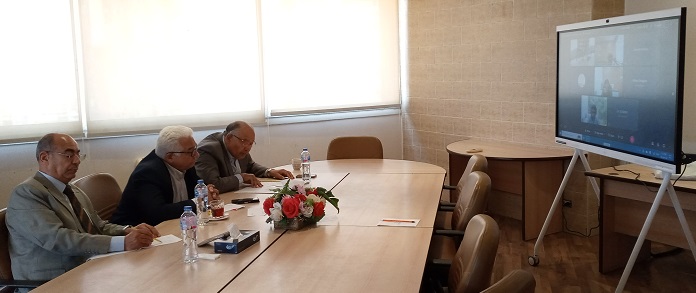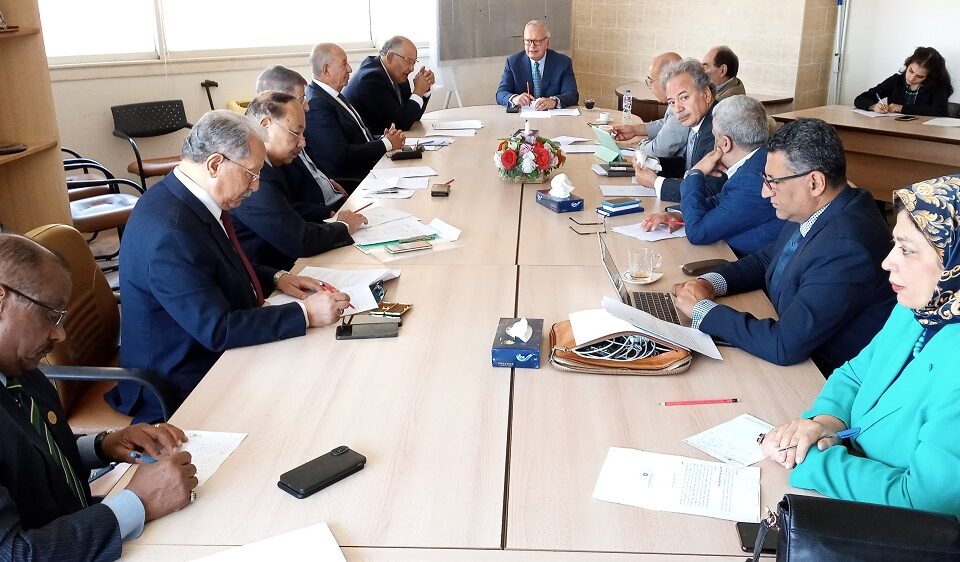Visit of the United Nations Truce Supervision Organization (UNTSO)
December 9, 2015Round Table Discussion About “The Importance Of Think Tanks To Decision-Making In Egypt, Difficulties Faced”
January 28, 2016
The Egyptian Council for Foreign Affairs held on Sunday,10th January 2016, a general session of the members of the Permanent Committee for Arab Affairs at the council, as part of the Council’s interest in developments in general, and in the Arab situation and the repercussions of the Iran – Saudi crisis against the backdrop of the execution of Shiite cleric “Nimr El-Nimr” along with 47 others executed by Saudi authorities, and sparking wide reactions regionally and internationally, as well as demonstrations in the east of Saudi Arabia. The round table was attended by Ambassadors: Mohamed Mounir Zahran, Abdel Raouf El Reedy, Mohamed Shaker, , Ezzat Saad, Ihab Wahba, Mohamed Nihad Asqalani, Fathy El-Shazly, and Sayed Abu Zeid , FarouqMabrouk, Mohamed SayedObaid, Ahmed Rizk Mohammed Abdul Hamid Kassem, Professor Dr. Ahmed Yousef, and Professor Mrs. Gelan Gabr.
The session was moderated by coordinator of the Committee Ambassador Ihab Wahba who pointed out that the quick invitation for this meeting was dictated by the seriousness of the new crisis, which broke out in the region recently, as if there is not enough crises in the area.
Opening the meeting, Ambassador Ihab Wahba talked about a number of points that sparked the crisis between Saudi Arabia and Iran, thatreviewed the determinants of the Egyptian situation, and raised a number of questions, hoping the participants would try to answer them.
-
The first question he raised was whether there was a reason for Saudi Arabia to take this action; especially as all these persons were languishing in Saudi prisons for years.
-
The second question is whether at this sensitive time when everyone is seeking to achieve peaceful solutions, in Syria or Yemen, why provoke Iran, especially as it is unconceivable to reach any solution in Iran’s absence. Or does Saudi Arabia believe that Iran is actually draining it in Yemen and Syria, and its growing influence is a menace to the security of the region?
-
There are several other questions: Is the new Saudi leadership under King Salman Ben Abdel Aziz and the Crown Prince and Minister of Defense Mohamed Ben Salman following a new foreign policy that is different from what Saudi Arabia had been following in recent years? Ambassador Wahba proposed that Dr Ahmed Youssef would be the first speaker. He said:
-
Iran is a regional power that is trying to have influence especially as it has a regional project and a long history in the region. The Iranian influence extends to Syria, Iraq, Yemen, Bahrain, in addition to its occupation of UAE islands.
-
Saudi policy in Yemen is designed to actually deter Iran as a serious threat to its security in the south.
Ambassador Abdel Rouf El-Reedy noted Egypt’s role in the crisis management as chairman of the Islamic Conference Organization. He stressed that the stand must be on consultative basis. Saudi Arabia is involved in developments in Yemen. With its experience, Egypt can help find a way out.





